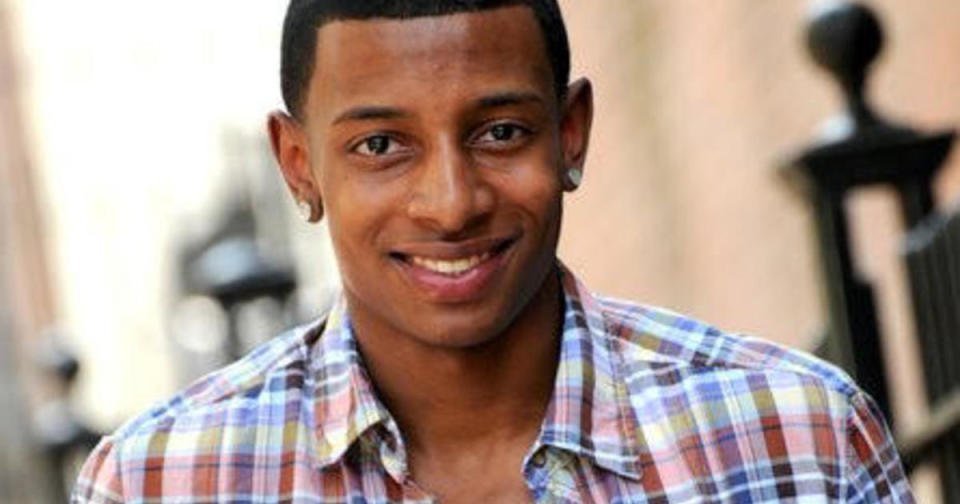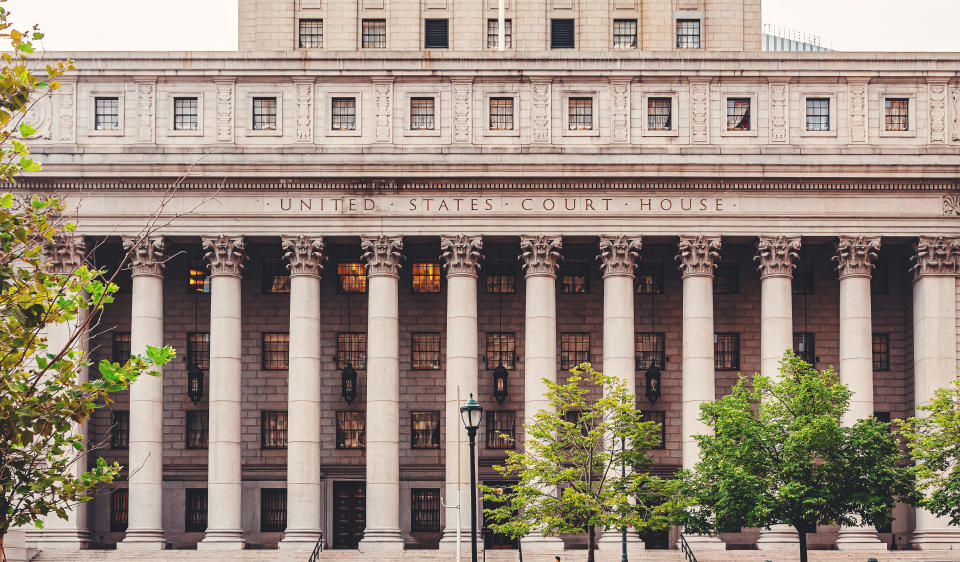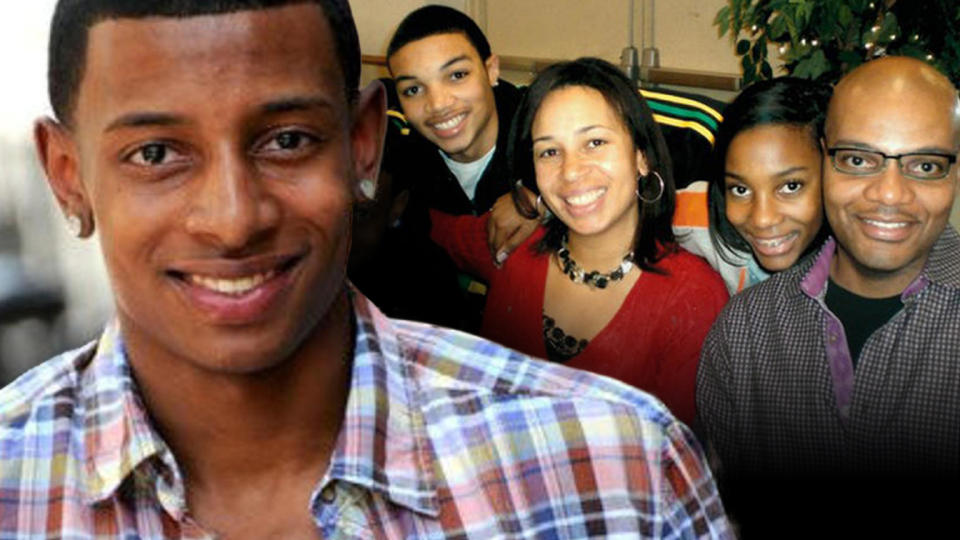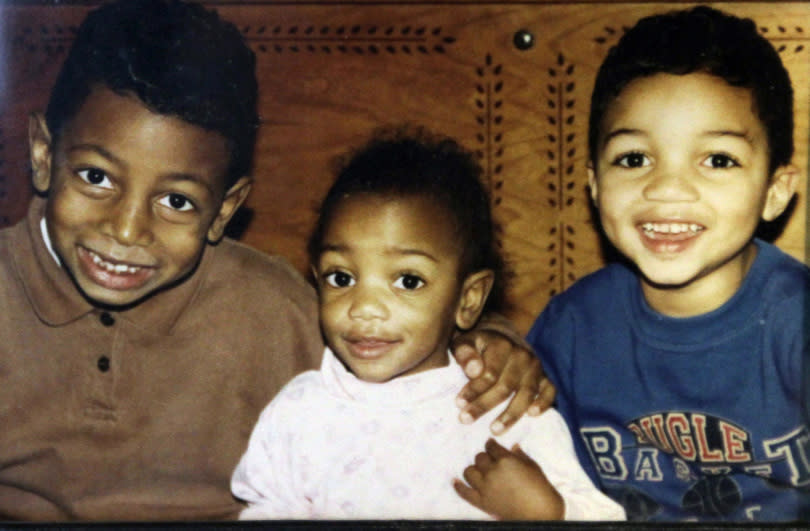Family of Black college student killed by white police officer draws support from Jay-Z, Rihanna and Amy Schumer in bid to reopen case
The death of an unarmed Black college student who was shot by a white New York police officer is getting renewed national attention as high-profile musicians Jay-Z and Rihanna, as well as Cleveland Browns wide receiver Odell Beckham Jr., have joined the victim’s family to demand that the 10-year-old case be reopened.
Pace University football standout Danroy "DJ" Henry Jr., 20, was shot and killed by Westchester Police Officer Aaron Hess outside Finnegan’s Grill in Thornwood, N.Y., on Oct. 17, 2010, as he drove away from a disturbance at the bar. Even though a grand jury later cleared Hess of wrongdoing in the shooting, Henry’s family contends the case was never properly investigated. The circumstances of his death have taken on renewed scrutiny in the wake of the killing of George Floyd by Minneapolis police.
DJ’s father, Danroy Henry Sr., said that the past 10 years have felt like the longest 24 hours. “It’s been one long day in some ways,” Henry Sr. told Yahoo News in a video chat interview. “We really haven’t had a chance to stop and just think about the actual loss of our son. We feel it every day. It is ever present in our daily beings, but we feel like we still have to have this posture of fighting because ultimately we don’t think this case was ever properly tried.”
On July 14, Rihanna, Jay-Z and Beckham Jr. sent a letter to Attorney General William Barr that called on the U.S. Department of Justice to reopen an investigation into Henry’s death based on new information they say has recently emerged.
“The facts support this request, the law all but requires it, and justice — it demands it,” the letter reads. “But like so many other unarmed and innocent young Black men who find themselves guilty of being at the wrong place at the wrong time, DJ, too, lost his life for no good reason and with absolutely no good explanation — to this very day. Justice, it appears, has been denied.”
Comedian Amy Schumer also shared the story of DJ’s death on Twitter, writing, “They are considering reopening the case because of new evidence. We need to support. Please everyone I know post this and say his name #djhenry #justicefordjhenry.”

The night Henry died, he was out at a sports bar with his football teammates when a separate group of patrons got into a fight. Bar management turned on the lights, turned the music down and announced that the cops were called and everyone had to leave. Henry left the bar to retrieve his Nissan Altima, pulling it into a fire lane as he waited for his friends to get into the car.
An officer then pulled up behind DJ’s car and sounded two bursts of his siren, signaling for the driver to move, but neither Henry nor his friends heard this sound, they said. This same officer then knocked on the window of Henry’s car, a signal the young man took to move his car. He began pulling away from the curb without rolling down his window just as Hess arrived at the scene. Seeing the vehicle moving alongside the officer already at the scene, Hess claims he ordered Henry to stop his vehicle, though, again, none of the people in the car said they heard that order.
After instructing him to stop the car, Hess said, Henry’s car came right at him, and the officer landed on its hood. Hess claims Henry tried to run him over and, fearing for his life, fired his weapon through the windshield to stop him. Other witnesses offered a different account of the incident, saying the Altima was braking when Hess stepped in front of it.
Hess later said that it was a split-second decision to fire his gun and that race was not a factor because he couldn’t see through the windshield and only saw Henry’s silhouette.
Desmond Hinds, who was in the car with Henry disagrees with the officer’s version of events, telling Yahoo News that Hess began shooting at the young men unprovoked. “We were following directions from one police officer [to move out the fire lane] and another police officer decided to cross into the street over the double yellow lines in front of our car with his gun out,” Hinds recalled in a phone interview. “It felt like a movie. It happened so fast and the word that comes to mind is ‘unreal.’ It’s hard to explain.”
Hinds added, “[Cops] eventually pulled me out of the car onto the ground. I said, ‘Officer, we did absolutely nothing,’ and he pointed a gun at the back of my head. Another officer said to another friend, ‘Back up or you will be next.’”

The case was brought before a New York grand jury where Hess, who received an Officer of the Year award months later from the Police Benevolent Association of the Pleasantville, N.Y., Police Department for his “dignity and professionalism” in the months after the fatal shooting, was cleared of wrongdoing. But newer details led DJ’s family and supporters to have more questions than answers.
Two years after the fatal shooting of DJ, Mount Pleasant, N.Y., Police Officer Ronald Beckley said in a deposition that he fired his weapon at Hess, who he didn’t initially realize was an officer. Beckley stated he believed Hess was the “aggressor” in the incident.
Henry Sr. said it’s unclear whether the grand jury was ever presented with this information because it was made public only after they heard testimony. Hinds believes it was not.
“When [officer Beckley] went to tell his side of the story, the chief of police said we are not going with that story,” said Hinds. “That’s critical information that has to come out.”
But Hess’s attorney, Brian Sokoloff, says this information is not new. “Officer Beckley’s testimony is not new evidence,” Sokoloff told Yahoo News. “He testified before the grand jury. … [Beckley] did not see officer Hess get on the hood of the car, so the first time he saw officer Hess was on the car. The fact that he thought the officer was the aggressor is not a thing.”
Sokoloff added that a toxicology expert determined that DJ had alcohol in his system that night and “was very intoxicated” when he was shot and killed. The entire ordeal was a tragedy, says Sokoloff, for everyone including DJ’s family and Hess. Sokoloff confirmed that Hess is no longer a police officer. “It’s just not fair,” Sokoloff said. “Aaron Hess’s career was shattered in that moment.”
But Hinds says this is not true and that DJ was not drunk at all. “He was the designated driver, and we all had one drink that night before we went out,” Hinds said. “We went to the bar, and he did not have a drink there.”

Henry Sr. adds that the Henry family asked to do the toxicology report in conjunction with Sokoloff, but Sokoloff went ahead and did it on his own. “They did his autopsy,” Henry Sr. said. “We told them we were going to come to do a second autopsy. They did it without us, and then there’s a gap in controlling his sample where we know that somebody tampered with it.”
A college friend of Henry’s, Johanie Menendez, is pushing a Change.org petition to “Re-Open DJ Henry’s Case.” As of Thursday afternoon, it had more than 269,000 signatures. She remembers the impact that DJ’s death had on the campus. “It was like Nipsey or [rapper] Pop Smoke died,” she said. “The entire mood on campus was different. There was a somberness. The Halloween after [his death] was around DJ’s birthday and people were out, but it wasn’t the same because it’s, like, DJ should be here.”
Hinds played college football with DJ at Iona before they both transferred to Pace to continue their athletic careers. Hinds says DJ’s death changed his entire outlook on life, and he’s encouraged by this recent push to reopen the case. “He made me not take anything for granted,” he said. “And [I’m happy that] celebrities and everyone else is looking into the case, doing their own research and finding out the truth.”
In June, a spokesperson for Westchester County District Attorney Anthony Scarpino Jr. told the Enterprise that there were “no plans to reopen the case” at the time. “The case could only be reopened if new evidence was discovered,” said DA spokesperson Helen Jonsen.
Sokoloff believes the killings of George Floyd and Breonna Taylor are moving people to reexamine all police killings of Blacks, but he believes this case is different. “There are police excessive-force cases around the country, and people are angry about them,” Sokoloff said. “People are looking for scapegoats, and they are saying, ‘Whose scalp can we nail to the wall because of what happened elsewhere?’ People are lashing out at Aaron Hess and saying there is new evidence. There is no new evidence.”

The Henry family and Hinds did receive civil settlements and an apology from the town of Mount Pleasant as a result of what transpired the night of DJ’s death. But the financial compensation doesn’t bring back the young man friends and family remembered as one of the most caring people you could meet.
“I think the painful part of this is that I still have trust in our institutions,” Henry Sr. said. “I just sometimes don’t trust the people who are entrusted with caring for our institutions.”
Nearly 10 years later, Hinds remembers DJ for being “righteous, God-fearing, kindhearted ... and genuinely a good guy.” He believes that, in a twisted way, DJ accomplished what he set out to do. “He always said he wanted to be famous,” Hinds recalls. “[Now] he has that legend status. … I wish we got to appreciate him a little more while he was here.”
_____
Read more from Yahoo News:
Case of teen jailed for missing online classwork shows how schools and courts oppress Black students
Georgia murder case tests whether a Black man can stand his ground against whites
Video shows Black man pinned to tree in what he calls 'attempted lynching' at Indiana lake
'Sleeping while Black': Family seeks justice for Breonna Taylor, killed in her bedroom by police



